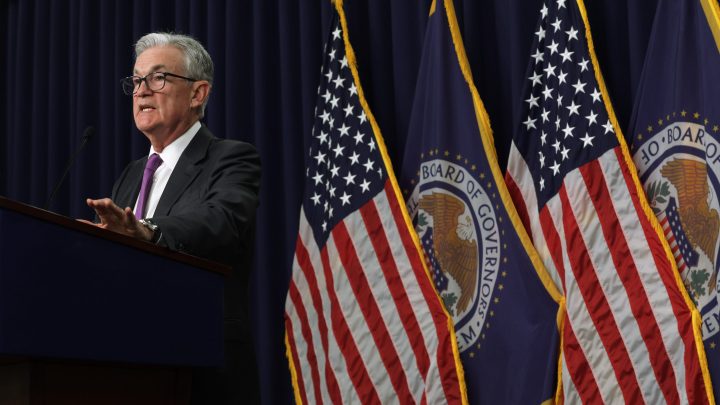
Is slowing wage growth good news for inflation?

Yesterday, “Marketplace” previewed one of the data points the Federal Reserve is looking at this week as it decides what to do next in its fight against inflation: the Employment Cost Index, or ECI, which measures how much it costs employers to pay their employees and provide them with benefits.
We got the latest data number, for the third quarter. Labor costs rose 1.1% over the last three months, which means they’re up 4.3% over the last year.
That’s a good bit higher than what the Fed might want it to be, but labor costs are moving in the right direction — slowly.
Here’s why the central bank cares about what businesses are spending on wages and benefits:
“If wages are going up, that means that the employer is now paying more, right?” explained Rucha Vankudre, a senior economist at Lightcast.
She said if employers are paying their employees more, they’re going to want to make up that profit somewhere.
“And the way they’re going to do that is they’re going to increase prices,” she said.
Then employees demand higher wages to keep up with inflation, and what you have is a wage-price spiral. We heard a lot about that a couple years ago, but now, wage growth is cooling off, said Sarah House, senior economist at Wells Fargo.
“We’re certainly seeing it ease from the frenzied rate that we saw in 2022, and even earlier in 2023,” she said.
The main reason? It’s become a bit easier for employers to find and retain workers, House said. Fewer people are quitting their jobs, and more people are entering the labor force.
Still, it’s not like all of the pandemic-induced labor shortages just miraculously resolved.
“You still have a historically high share of businesses saying that they’re having trouble finding workers,” House said.
That’s keeping the cost of paying for workers relatively high, it’s just not going up as fast as it was a year or so ago.
But employees might keep getting raises for a while, said Frank Fiorille, vice president of risk, compliance, and data analytics with payroll company Paychex. That’s thanks to pay boosts in recent union deals for auto workers and UPS drivers, and a new California law that will raise wages for fast food workers. He said other employers might have to follow suit.
“Even in an industry that isn’t directly affected on that, they’re going to have to react just to make sure that they’re competitive, and then they can get the best and brightest people,” he said.
So, maybe we all keep getting pay bumps, and Jay Powell gets a headache.
There’s a lot happening in the world. Through it all, Marketplace is here for you.
You rely on Marketplace to break down the world’s events and tell you how it affects you in a fact-based, approachable way. We rely on your financial support to keep making that possible.
Your donation today powers the independent journalism that you rely on. For just $5/month, you can help sustain Marketplace so we can keep reporting on the things that matter to you.

















